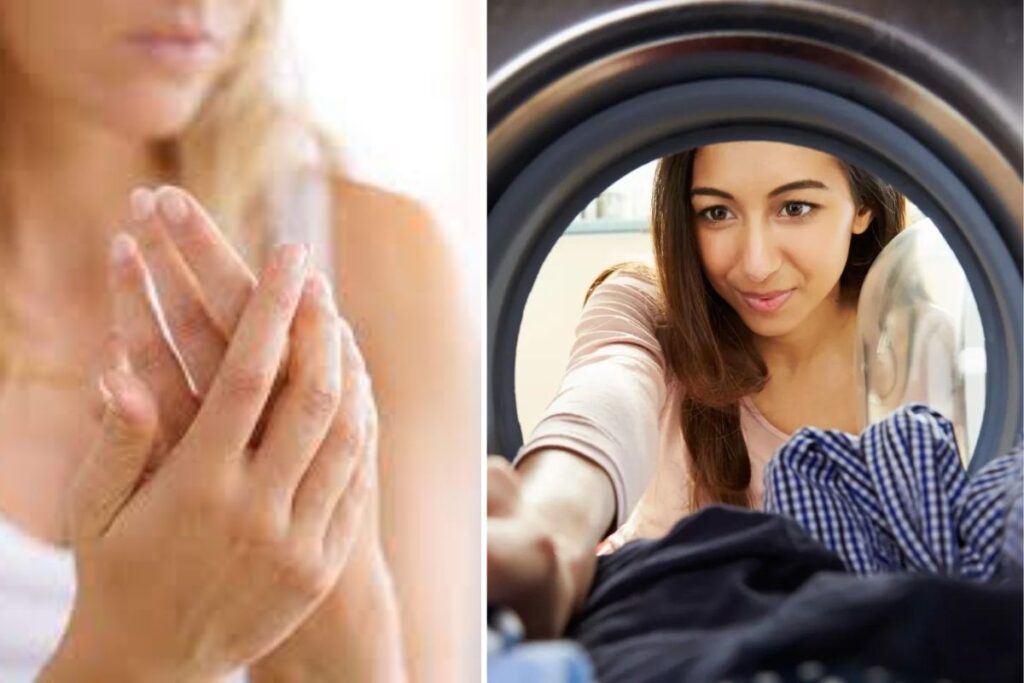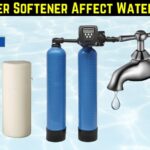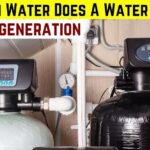Like most homeowners, you probably only think a little about your water softener – until it stops working.
Like any other appliance in your home, your Water Softener Pros Cons.
In this post, we’ll look at the pros and cons of softened water so that you can make an informed decision about whether or not one is right for you.
The Truth about Water Softeners?
Water softening is a domestic appliance used to remove minerals from hard water.
Hard water contains high levels of calcium, magnesium, and other minerals that can cause several problems in your home.
Water softeners exchange the hard minerals in water for sodium or potassium. This descaling process is known as ion exchange.
While this may sound like a simple and effective solution to hard water, there are both pros and cons to using a softener in your home.
Pros and Cons of Water Softener:

PROS:
1. Improve the taste of water
One of the most noticeable pros of having a softener is that it can improve the taste of your water. This is because hard water often has a mineral taste that many people do not enjoy.
2. Soap will lather better
If you have hard water, you probably notice that your soap also does not lather. This is because the minerals in hard water prevent the soap from entirely dissolving.
However, your soap will lather much better if you have a softener.
3. Improve the lifespan of appliances-
Another pro of having a softener is that it can improve the lifespan of your longer-lasting appliances. This is because hard water can damage appliances over time due to the build-up of minerals.
However, if you have a softener, hard water will not damage your domestic appliances.
4. Prevent dry skin and hair-
Hard water can also cause dry skin and hair. This is because the minerals in hard water can strip the natural oils from your skin and hair.
However, if you have a softener, your skin and hair will not be stripped of natural oils.
5. Save money on laundry-
One of the biggest pros of having a softener is that it can save you money on laundry.
This is because hard water can damage your clothes over time and cause them to wear out faster. However, if you have a softener, your clothes will last longer.
6. Prevent plumbing problems-
Hard water can also cause additional plumbing issues. This is because the minerals in hard water can scale buildup in your pipes and cause them to clog.
However, if you have a softener, hard water will not damage your pipes.
7. Save money on soap-
Another big pro of having a softener is that it can save money on soap. This is because you will not need as much soap as a softener.
Cons:
1. They use salt-
One of the biggest cons of having a softener is that they use salt. This can be a problem for people who are on a low-sodium diet.
2. They require maintenance-
Another con of having a softener is that they require maintenance. This includes adding salt to the softener regularly.
3. They are expensive-
It can be costly to purchase and install.
4. They use electricity-
This also uses electricity to run. This can be a problem for people trying to save money on their electric bills.
5. They can cause environmental problems-
One of the biggest cons of having a softener is that it can cause environmental problems. This is because the salt used in softeners can pollute the environment.
Disadvantages of Salt-Based Water Softener:
1. They use a lot of salt – Between 25 and 50 pounds per year
2. They waste water – Up to 12 gallons of water for each pound of salt used
3. They cost money to operate – $60-$600 per year, depending on the type and size
4. They require maintenance – Backwashing, adding salt, and flushing the system
5. They can cause skin irritation – For people with sensitive skin, the salt in the water can cause irritation
6. They can pollute the environment – The brine discharge from softeners can pollute lakes, streams, and groundwater
7. They can leave a film on dishes and laundry – The high concentration of salt can leave a film on dishes and laundry
8. They can taste salty – The high concentration of salt can make the water taste salty
Are Water Softeners Safe?
When it comes to softeners’ safety, there are many misconceptions out there.
Some people believe that softeners add harmful chemical composition to your water. In contrast, others think the salt used in the softening process is dangerous.
The truth is softeners are very safe and can improve the quality of your softener’s work by exchanging ions in the water with sodium ions.
This regeneration process is safe and does not add harmful chemicals to your water.
In fact, many people believe that water from a softener is healthier to drink than regular tap water.
The salt used in softeners is also not dangerous. In fact, the amount of salt used in a softener is actually minimal.
The rock salt used in softeners is typically sodium chloride, the same type used in cooking.
So, suppose you’re worried about the safety of softeners. In that case, you can rest assured that they are very safe and can improve your water quality.
Water Softener Alternatives:
Some people are concerned about the amount of salt they use, while others simply want a more natural option. Luckily, there are a few water softener alternatives available on the market.
Magnetic Water Softeners:
One popular alternative to traditional water softeners is the magnetic water softener.
This type of water softener uses magnets to change the properties of the minerals in hard water, making them less likely to stick to your plumbing fixtures.
Salt-Free Water Softeners:
Suppose you are concerned about the amount of salt traditional water softeners use. In that case, a salt-free water softener may be a good alternative.
These water softeners use an ion exchange process to remove minerals from hard water without salt.
Reverse Osmosis Systems:
Reverse osmosis systems are another popular alternative to softeners. These systems filter out impurities from your water by forcing it through a semipermeable membrane.
This leaves you with clean, soft water that tastes great.
Water Conditioners:
Finally, water conditioners are a more affordable alternative to softeners. Water conditioners don’t actually remove minerals from hard water.
Instead, they prevent minerals from sticking to your plumbing and fixtures, which can help extend the life of your appliances and save you money on repairs.
Whichever type of softener you choose, research to find the best option for your home and family.
Be sure to read reviews, compare prices, and get expert advice to ensure you make the best decision for your needs.
How to Make Hard Water?
Water hardness is caused by dissolved minerals, specifically calcium and magnesium. Water percolates through rock and dissolves small amounts of these mineral deposits.
The degree to which water is hardened depends on the types and concentrations of minerals in the rocks and how long the water has been in contact with them.
The further water travels through rock, the harder it becomes. Groundwater tends to be harder than surface water because it has had more time to come into contact with heavy metals.
Water hardness is measured in grains per gallon (mpg) or milligrams per liter (mg/L). Water with 1 gpg of hardness is “1-grain hard.”
One grain of hardness is equal to 64.8 mg/L, or ppm.
Water with more than 10 gpg of hardness is considered very hard. Water with less than 1 gpg is considered soft.
The degree of hardness has nothing to do with the presence of dirt, sediment, or other impurities in the water.
The only way to make hard water is to add positive calcium and magnesium minerals. This can be done by passing the water through a calcium carbonate or magnesium oxide filter.
Alternatively, add calcium chloride or magnesium sulfate (Epsom salts) to the water.
Hard Water and Soft Water Advantages:
Hard water advantages
1. It does not cause much lather with soap.
2. It is rich in minerals like magnesium and calcium ions, which are beneficial for health.
3. Its high mineral content gives it a distinct taste that some people prefer.
4. Hard water does not strip natural oils away from the skin as quickly as soft water, leaving skin dry and irritated.
Soft water advantages
1. The soap lathers more easily in soft water, saving you money on laundry and cleaning supplies.
2. It can prolong the lifespan of water appliances, such as washing machines and dishwashers, by preventing mineral buildup.
3. Soft water leaves skin and hair feeling cleaner and softer than hard water.
4. It can save you money on energy bills by reducing the time and hot water needed to clean clothes and dishes.
5. Softer water is less likely to cause entire plumbing maintenance problems than hard water.
6. It can improve the taste of drinking water for some people.
While hard and softer water has advantages, if you have hard water, you may want to consider a water softener installation to enjoy the benefits of soft water in your home.
What Is Involved In Water Softener Maintenance?
You might be wondering exactly what is involved in high-quality water softener systems.
After all, it’s not like your dishwasher or your dryer – there’s no need to add detergent, and you don’t have to worry about lint buildup.
As long as the salt level in your softener is where it should be, you’re good to go, right?
Wrong. Like any other appliance in your home, your water softener systems need a little TLC occasionally.
Here are a few maintenance tips to keep it running smoothly:
1. Check the salt level regularly. Depending on the size of your unit and the hardness of your water issues, you may need to add salt as often as once a month or as seldom as once every six months.
2. Clean the brine tank at least once a year. Over time, the salt can cut and clump, leading to inefficient operation.
A simple solution is to add a cup of white vinegar to the tank once a month, which will help to break up the salt.
3. Inspect the unit for leaks. If you notice any actual water flow on the floor around the benefits of the water softener unit, it could signify a leak.
These are relatively easy to fix – just tighten any loose connections.
4. Have your water tested periodically. This will help you to determine if your average water softener benefits are operating correctly and, if not, what needs to be adjusted.
Following these simple tips, you can keep your conventional water softener running smoothly for years.
Salt-Based Water Softener vs. Salt-Free Softener:
Depending on your needs, you may want to consider a salt-based or salt-free water softener.
Salt-based systems are the most common type of conventional water softener unit. They work by exchanging ions in the water issues with sodium ions. This process is called ion exchange.
Salt-based softeners are effective at removing hardness minerals but have some downsides.
For one, they require you to add salt to the system regularly. It also uses a lot of water inlet to regenerate, which can be wasteful.
Salt-free water softeners don’t actually remove the hard minerals from the water. Instead, they change the way the minerals deposits cling to surfaces.
This prevents them from being deposited on pipes and fixtures, which can cause hard water buildup.
Salt-free systems have a few advantages over salt-based softeners. For one, they don’t require you to add salt to the system.
They also don’t use as many water inlets to regenerate, so they’re more environmentally friendly.
However, salt-free water softeners are less effective at removing hardness minerals than salt-based softeners.
And they can’t be used with well water since the minerals in well water flow can clog the filter.
Conclusion (Water Softener Pros Cons)
There are pros and cons to having an automatic water softener. The biggest pro is that it can help prolong the life span of your plumbing and appliances.
The biggest con is the initial cost of maintenance and electricity. Ultimately, whether or not to have a softener is up to the homeowner.






